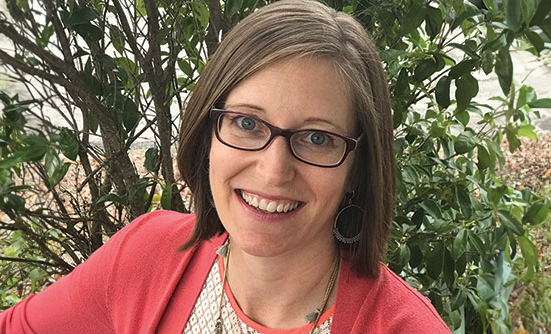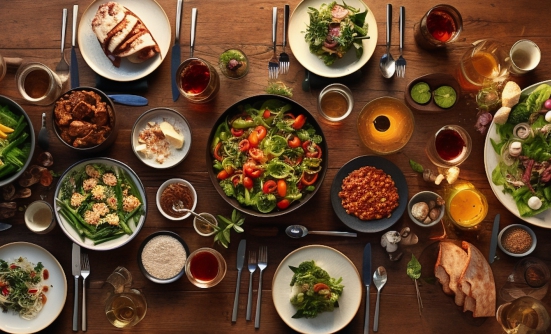An earlier version of this article was published in CONQUER magazine in November 2020
For people diagnosed with lung cancer, weight loss is a significant concern. Weight loss has been associated with poor outcomes for all patients with lung cancer, including patients with non–small-cell lung cancer, the most common type of lung cancer, and those with small-cell lung cancer.1,2
Overall, weight loss in patients with any type of lung cancer increases adverse reactions to treatment and shorten survival time.2 This is why managing and preventing weight loss during cancer therapy is so crucial.
In fact, many people lose significant weight by the time they are diagnosed with lung cancer. Unintentional weight loss may also be a symptom of lung cancer. People who have lung cancer and receive treatment need to consume more calories each day to maintain their healthy body weight.
But it is often challenging for many patients with lung cancer to keep up with the increased need for calories, especially when dealing with the common symptoms associated with lung cancer, such as shortness of breath and unintentional weight loss, or the side effects of the cancer treatment, such as nausea, mouth sores, altered taste, and/or reduced appetite.
Unintentional Weight Loss
Unintentional weight loss occurs when your body is not getting sufficient nutrients to keep up with the energy required for daily activities.
Many patients with lung cancer have symptoms such as shortness of breath, chronic coughing, and mucus build-up, which can affect their ability or desire to eat. The result can be weight loss, malnutrition, and significant fatigue.
Good nutrition habits during lung cancer treatment can help to prevent malnutrition related to your treatment. Many patients with lung cancer can benefit from a consultation with an oncology dietitian. Ask your oncology care team if you may have access to an oncology dietitian at your treatment facility or if you can get a referral.
How to Manage Poor Appetite
Here are some strategies on how to deal with the most common side effects that affect body weight in patients with lung cancer. Try these strategies to make sure that you give your body adequate calories for healing. If you don’t have much appetite, or if you quickly become full, the following tips can be helpful:
- Eat something within an hour of waking.
- Eat a small, high-calorie, high-protein snack every 2-3 hours.
- Set a timer to remind yourself when to eat (or ask your caregiver to remind you).
- Don’t nap for more than 2 hours, so that you don’t sleep through snack time.
- Prepare easy-to-grab snacks, blended foods (such as smoothies or milkshakes), nuts, peanut butter sandwiches, or individual cups of fruit, yogurt, or cottage cheese.
- Make meals more enjoyable by eating with friends (virtually or in person) or listening to music while eating.
- If you can’t tolerate solid foods, use nutritional supplements at mealtimes.
- If your bowel movements are irregular, contact your treatment team and ask for advice that will help you to maintain regular bowel movements.
- If your appetite does not improve, ask your doctor about medications that can help to increase appetite or gastric emptying.
- Be physically active.
How to Maintain Good Weight
If you are losing weight unintentionally, the following strategies may help you to increase your calorie and protein intake, which can improve your situation:
- Consume small, frequent meals.
- Do not skip meals.
- Eat breakfast foods at any meal, if you find such foods more appealing and easier to consume than other foods.
- Add 1 cup of dry milk powder to 1 quart of regular milk to make fortified milk (which increases the calories and protein intake, as well as other nutrients).
- Add fat to the food you eat. For example, melt butter and mix it into applesauce with cinnamon and sugar; add oil or butter to broths; add oil to noodles, bread, rice, and hot cereals.
- Use variety in the fats and sugars you choose, such as avocados, monounsaturated sources of oil, olive oil, nuts and nut butter, and sunflower seeds, and add honey, maple syrup, and plain full-fat yogurt to what you are eating. These can be a good way to add calories to fruit smoothies or to green smoothies.
- Do not eat your favorite foods when you are nauseated. Save those for the good days.
- If you are able to tolerate solid foods and are using nutritional (liquid) supplements for extra calories, make sure you don’t use them as meal replacements, because you may miss out on important nutrients that are provided by solid foods. It is best to consume a 1/2 cup of liquid supplements after each meal or as snacks during the day. If you are getting nutrition only from supplement drinks, ask your dietitian exactly how many cans you need to meet your personal calorie requirements.
- Stock the kitchen with easy-to-prepare and easy-to-eat foods if you are too tired to cook.
- Eat small, frequent meals and snacks.
- Drink enough water; dehydration can increase fatigue.
Optimize Your Healing
The best way to know if you are getting enough calories and protein is to weigh yourself weekly. Also, remember to provide your body with adequate fluids. If you lose more than 3 pounds in a week, it is probably because of fluid loss.
If your weight continues to drop from week to week, try to increase your calories until you start to maintain your weight.
By working to provide your body with adequate nutrition during your lung cancer treatment, you will optimize your body’s healing potential, minimize the side effects of the treatment, and improve your quality of life.
References
- Mytelka DS, Li L, Benoit K. Post-diagnosis weight loss as a prognostic factor in non-small cell lung cancer. Journal of Cachexia, Sarcopenia and Muscle. 2018;9(1):86-92. https://onlinelibrary.wiley.com/doi/10.1002/jcsm.12253.
- Ross PJ, Ashley S, Norton A, et al. Do patients with weight loss have a worse outcome when undergoing chemotherapy for lung cancers? British Journal of Cancer. 2004;90(10):1905-1911. www.ncbi.nlm.nih.gov/pmc/articles/PMC2409471.











